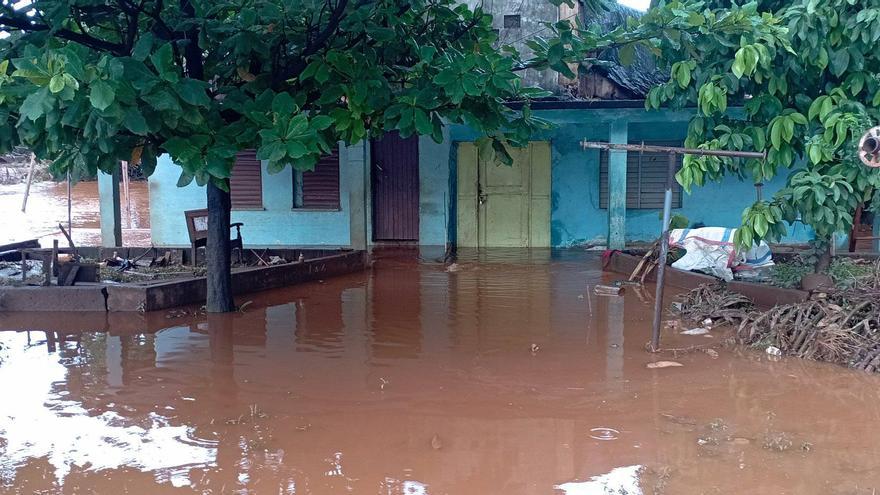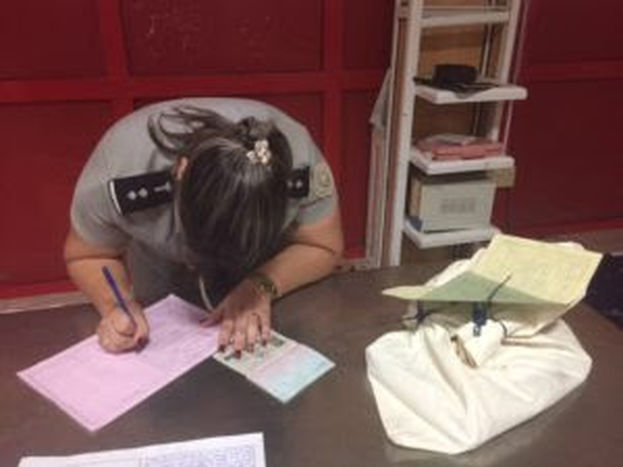Nothing could be further from the truth. The growing threat of illicit activities such as smuggling, drug trafficking and terrorism, which the regime’s leaders use as arguments to defend the interference of the customs system in the functioning of the economy, does not correspond to the observation of reality. For example, in the European Union, where customs have been demolished for decades, nobody is thinking about smuggling, drugs or terrorism, with higher levels than in other areas of the planet. The argument of the Cuban authorities is not supported by reality, like many other communist ideological maxims inserted in the mechanisms of political control that the Castro regime possesses.
Instead of lightening the customs burden, Cuban communists have embarked on a process of attempting to perfect both customs processes and the application of tools that guarantee compliance with the responsibilities and functions of Customs, which, far from benefitting trade, employment, and economic activity, serves to impose control and surveillance upon economic actors that try to open spaces in the heavy bureaucratic structure of the economy.
Cubans know well what the Customs General of the Republic represents, as if, since the beginnings of the revolutionary process, it took a path of repression and sanctioning that accompanied those who were fleeing communist oppression until the last minute of searches carried out in continue reading
airports. Many Cubans were victims of those practices and were dispossessed of their scarce belongings through pillaging practices, orchestrated by the communist party with customs officers at their service to appropriate items that were later redistributed.
The confiscation practices of those revolutionary moments reached such dimensions that I remember that, during the Special Period, a compatriot that was visiting the island was able to verify that jewels that had belonged to his family were being auctioned off at hotels in the capital. It’s incredible how time sorts things out. So no one should find it surprising that Cubans view their Customs as nothing other than one more repressive instrument at the service of the regime’s state security.
For that reason, however much propaganda seeks to clean up this image, it is not an easy task. Customs is not seen as a public service that serves the citizens or as an instrument to collect indirect taxes in order to fulfill state customs policy for international traffic of transportation, goods and travelers. Nobody thinks of it that way– Customs is seen in a completely different light.
The regime wants customs management to serve the protection and security of the borders, but, in Cuba, this activity is carried out by practically the entire institutional and party organization, including the CDR’s (Committees in Defense of the Revolution) and popular organizations at the service of the regime, thus the practical sense of Customs is of no interest– it is redundant. It is just an agency that generates abundant employment, not well-paid of course, similar to many others that make up the budgeted sector, and not much more.
Another turn of the screw to further control and surveil economic actors, just the opposite of economic freedom and the opening of borders, which is what economic efficiency demands
The state press has included statements from Nelson Cordovés, head of Customs, who said that “all of the regulations related to the border are being reviewed in order to ensure security in trade, as well as transparency and agility in these processes”. It’s enough to make one tremble. Another turn of the screw to further control and surveil economic actors, just the opposite of economic freedom and the opening of borders, which is what economic efficiency demands.
The communists want Customs to be a guarantee of safe trade and that, in light of the “growing threat of illicit activities such as smuggling, drug trafficking and terrorism, customs processes must be improved and strategies must be applied to ensure compliance with the responsibilities and functions of Customs”. A reasoning that is based on an erroneous assumption and turns into a statement that generates more than a few doubts and uncertainties.
Specifically, the leaders intend to implement a series of measures in customs management.
The first is to improve the “confrontation” system by acting on “the selection and updating of risk profiles, the physical recognition model with the requirements and instructions for the execution of red channels, the employment of canine methods, and the utilization of images and the interpretation of the x-ray screening of containers, in addition to achieving a consolidation of the Global Container Control Program”.
More control and bureaucracy in the “confrontation” that will lead many to stop their activities, diminishing the products and goods that enter the country through this route. The communists have offered data on inspections carried out in the last months and have entertained themselves by enumerating the sanctions applied to “errors in the country of origin, of classification, in the invoice value, in the filling out of the Goods Declaration (Declaración de Mercancías or DM), the distribution of expenses; surplus merchandise not legalized with customs; incorrect use or non-use of preferential agreements; and not concluding the processing of documents in the Single Customs Window (Ventanilla Única de la Aduana or VUA)”. Unbelievable.
Because if they were to follow protocol, at least 75% of the Customs staff would have to be cut
The second has to do with eliminating obstacles with an impact on customs clearance. Why only these and not all of them in general? Because if they were to follow protocol, at least 75% of the Customs staff would have to be cut. It’s important to remember that this entity extends its tentacles to actions related to the Ministry of Agriculture, and to the temporary admission of goods to be exhibited at fairs, exhibitions, and other similar events, which is usually given an opportunistic internal exit when the events in question are over. It also extends to foreign investment, focusing on aspects that influence the process of obtainment and certification by national regulatory bodies.
The third measure is related to the single window, whose new services that display the data and status of the Goods Declaration, settlement statement, error statement, summary of operations, time frames, and report on the information of the maritime and air manifests, among other options, allow a better use and presentation of documents of the declarant. The question is, how many actors would really benefit from this service, and above all, who? There would be surprises.
The fourth has to do with the increased inclusion of economic actors in the authorized economic operator program.
This is a certification granted by Customs to a company, in theory almost all state-owned companies dependent on the regime, which are part of the supply chain, and that comply with customs standards, in order to ensure the security of the foreign trade logistics chain.The entity is recognized as a safe and reliable operator in the supply chain for Cuba’s Foreign Trade, embedded in the changing dynamics of global trade and international standards. At the moment, the small and medium-sized enterprises or self-employed workers included in this certificate can be counted on one hand.
The fifth step involves making improvements in the management and procedures of customs revenue collection. Income has to be obtained by any means necessary because the state’s coffers are suffering from the weakness of the economy. Here, the communists are working to implement electronic payment through the Single Window, a further step in the process of hierarchical access to banking services imposed by the regime.
Customs, directed by the communist organization and under the ideological control of the regime, will do whatever it deems opportune, but we must say beforehand that none of this will benefit the functioning of the Cuban economy. Customs acts as a control and collection barrier that makes no sense and does not meet the efficiency requirements needed for an economy to prosper. With this type of Customs, the memory for many Cubans will continue to be the same as during the years of repression. It would be best to close it.
Translated by Lucie McCallum and Jesus Tunon as part of Spanish 321 (University of Miami)
____________
COLLABORATE WITH OUR WORK: The 14ymedio team is committed to practicing serious journalism that reflects Cuba’s reality in all its depth. Thank you for joining us on this long journey. We invite you to continue supporting us by becoming a member of 14ymedio now. Together we can continue transforming journalism in Cuba.

![]() 14ymedio, Havana, 16 November 2023 — The second flood in barely three days of the Cabaña River, in Holguín, has forced the evacuation of residents of several towns in the municipality of Moa on Wednesday. In just 45 minutes, the level of rainfall rose to 80 millimeters and caused serious damage in the communities near the Nuevo Mundo dam.
14ymedio, Havana, 16 November 2023 — The second flood in barely three days of the Cabaña River, in Holguín, has forced the evacuation of residents of several towns in the municipality of Moa on Wednesday. In just 45 minutes, the level of rainfall rose to 80 millimeters and caused serious damage in the communities near the Nuevo Mundo dam.
